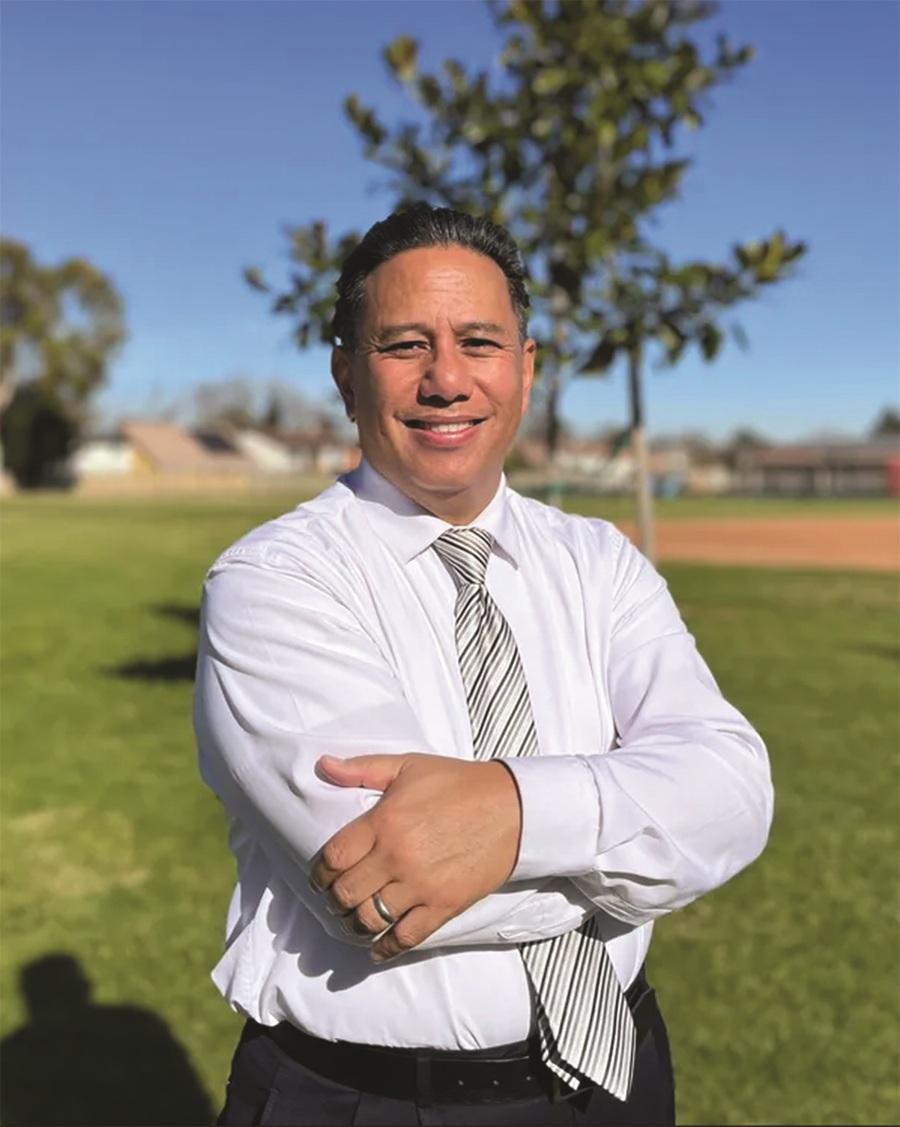
WITHIN the Filipino community, it’s considered taboo to talk about domestic violence because of a culture that taught people to keep family issues inside one’s household.
Domestic violence happens when a person uses fear and intimidation to control another person. It is a form of abuse that could happen between husband and wife, partners, or even parent and child.
It’s not the easiest subject to discuss, requiring a certain level of vulnerability to be able to open up about your experience and ask somebody for help. As a result, the issue gets swept under the rug.
In San Diego, the homicide rate is rising as a result of domestic violence in Filipino households.
To address this growing crisis, the Filipino Resource Center hosted a “Domestic Violence Forum” online on Monday, November 1. A panel of guest speakers also discussed different programs and resources available for people suffering from domestic violence in San Diego.
“[Domestic violence] is not just traumatic to the actual victim that’s involved, but it has a ripple effect that extends to that family, to the children left behind in that family, and also a ripple effect to the community at large,” said San Diego District Attorney Summer Stephan.
In 2020, a total of 17,679 incidents of domestic violence were reported to law enforcement, according to Stephan.
However, she noted that domestic violence is one of the “most under-reported crimes” in the county.
“So when we’re seeing 17,679 reports… that is an under-report because we know so many victims [do] not report domestic violence because of shame, because of feeling that they want to hold on to their family, because relationships and domestic violence begin with love,” said Stephan.
“[It’s] super important that we break that cycle because the next generation that witnesses violence in their homes begins to normalize that violence. And we know that kids that grow up in homes that experienced domestic violence are more susceptible to either becoming victims themselves because they accept or see that as the only way to have a relationship, or become abusers because this is all they’ve experienced,” she added. “This is why breaking that cycle through education, through prevention is really, really important.”
Resources
Domestic violence usually involves the dominion and control by the abuser.
According to Stephan, it can start with subtle things like checking the victim’s phone, controlling how long the victim has to talk on the phone or showing discomfort with strong friendships or relationships that the victim has with her family or his family.
“This is what we call an attempt to isolate the victim,” she said.
Domestic abuse can manifest in a lot of ways — physical abuse, verbal abuse, emotional abuse, financial abuse, or sexual abuse.
Stephan also noted that when a “triggering event” occurs, wherein the victim attempts to break away from the relationship through a divorce, there is a potential for the domestic violence to escalate and even result in homicide.
“What that means is that there needs to be resources brought about… make sure that there’s a safety plan and that the victims know they’re not alone, and that they can escape with the help of expert resources,” she added.
One of these resources is the Victim Advocate Office of the District Attorney, which has a victim assistance program made up of 20 advocates.
“We assist victims every day, regardless of whether there is an issued criminal case,” said Taraneh Sarebanha, a victim advocate. “That’s one thing that we really want to highlight here, you don’t have to have a criminal case that’s been issued to get that assistance.”
“We have phone calls, we have people reaching out every day asking for help, asking for information and guidance. You can call anonymously actually. We want you to get that information so that you can make the steps that are right for your family, for yourself,” she added.
Anyone is urged to call the office’s main line at (619) 531-4041, where callers will get assigned a victim advocate who can provide information so that they can understand the consequences and make an informed decision.
The Victim Advocate Office also helps with applying for a Crime Victims’ Compensation when a criminal case is issued.
“So the Crime Victims’ Compensation board for the State of California, their goal is to offset the effects of crime on a victim’s life and their family’s life,” said Keri Duncan, another victim advocate.
“This can include funds for emergency relocation, mental health therapy, home security, medical care, and more. We provide appropriate referral and resources for victims, and we meet victims where they are and try to tailor our services to their specific needs and issues,” she added.
Duncan stressed that their office is there to assist victims and their immediate circle to “create a sense of support and empowerment while maintaining safety.”
“We are here to help because we don’t want any person to feel helpless and alone in their fight from the perpetrator. We want to help restore their sense of self, safety, and wellbeing,” she added.
Law enforcement
For his part, Lt. Al Ambito of the San Diego Police Department reassured that resources are also available within police departments.
Filipino victims of domestic violence won’t have to struggle with the language barrier since there are people in the department who can speak their language and help them.
“It makes it easier for us to take the report. And also not just the verbal part, not just communication, but also understanding the culture,” he said.
“We, as Filipinos, are very private. So I think [domestic violence is] unreported because we don’t want other people to know that we have issues within our family. You know, we want to take care of it ourselves,” he added.
Ambito stressed that victims can call, even if it’s just to report verbal abuse. Someone will always take a report, he assured, as it is part of the San Diego Police Department’s strict protocol.
“Our response to domestic violence is very strict. California has one of the strictest, if not the strictest, laws for domestic violence,” he said.
“So again, that’s just one of the things that we want to encourage, especially here in the police department: to call us. Whether we’re going to take a report or not, at least we, as a police department, will have your address, your names, and it will be documented somehow,” he added.
Prosecution
Domestic violence doesn’t discriminate between race, gender, or age.
“One of the things that we see is that it crosses generations,” said Deputy District Attorney Justine Santiago.
“You have teen violence, you have domestic violence that will start when you’re in high school when teens start dating, all the way to situations where people are in committed marriages for over 20 years, and either they’ve experienced domestic violence that entire time, or it’s something new that developed, it does not discriminate between people,” she added.
According to Santiago, when it comes to prosecuting cases of domestic violence, it’s “not just cut and dry.”
“We have victims who are first reluctant to even report these cases to begin with, whether it be because they’re embarrassed, because they want to hold on to this notion of a relationship that they believed they were in, whether they’re in denial or whether they’re even in fear for being able to report it,” she said.
“Sometimes it never gets reported to law enforcement. But one of the difficulties that we also face is that even when a victim is brave enough when they get the courage to call law enforcement, it doesn’t automatically mean that we are able to go ahead and pursue a case to file charges,” she added.
One of the burdens of being a prosecutor, Santiago said, is having an ethical obligation not to issue something if they can’t prove it beyond a reasonable doubt.
“And as you’re all aware, these crimes happen behind closed doors,” she pointed out, referring to instances of domestic violence.
“Sometimes it’s verbal abuse. Sometimes it’s mental abuse. Sometimes there aren’t scars that we can use as evidence to show that something happened. So our hands are tied a lot of the time,” she added.
An important sentiment that Santiago wanted to stress is that the victims of domestic violence are not alone.
“Your voices are being heard, we’re here to support you. And we want the community to know that they should support and rally around everyone as well because it is an issue that’s gaining a lot of support from the media and social media,” she said.
Reaching out
Knowing the resources available for victims is key to helping them escape and break away from domestic violence.
Maricris Talabanza Drouaillet lamented her lack of knowledge about available resources to help her sister, May “Maya” Millete, who has been missing since the beginning of January this year.
Last month, Maya’s husband, Larry Millete, was arrested on suspicion of her murder.
“I didn’t know at all. If I had known, I could have intervened,” Drouaillet said.
“When she told me she consulted a divorce lawyer, I just told her, ‘just be careful.’ That’s all I told her. And then she said, she knows, she got it,” she added.
Drouaillet urged everyone to reach out to anyone they suspect of being a victim of domestic violence and assure them that they’re not alone.
“Don’t let your family member be like my sister. Don’t let your friend feel like my sister. Please be aware that there are resources out there, that there is help out there, and let them know they are not alone, that you are with them,” she said.
Maya’s disappearance has torn the entire family apart, according to Drouaillet.
“We are a family of 30, always getting together on every occasion and every opportunity… to create memories. Just being together makes us really happy. But since Maya’s absence, nothing has been the same. We’ll never be complete again,” she said.
Drouaillet found that domestic violence affects everyone, including the victim’s family members.
“[Maya’s] daughters and her son, [I don’t] even know what their future is going to be. Their mom has gone. And their dad is in prison. This is the effect of domestic violence,” she said.
“I hope my sister’s story can be a lesson to everyone. If you have a friend or if you have a family member that is going through this — not just physical violence, emotional violence, financial violence — please let them know that there are resources out there and help them,” she added.






